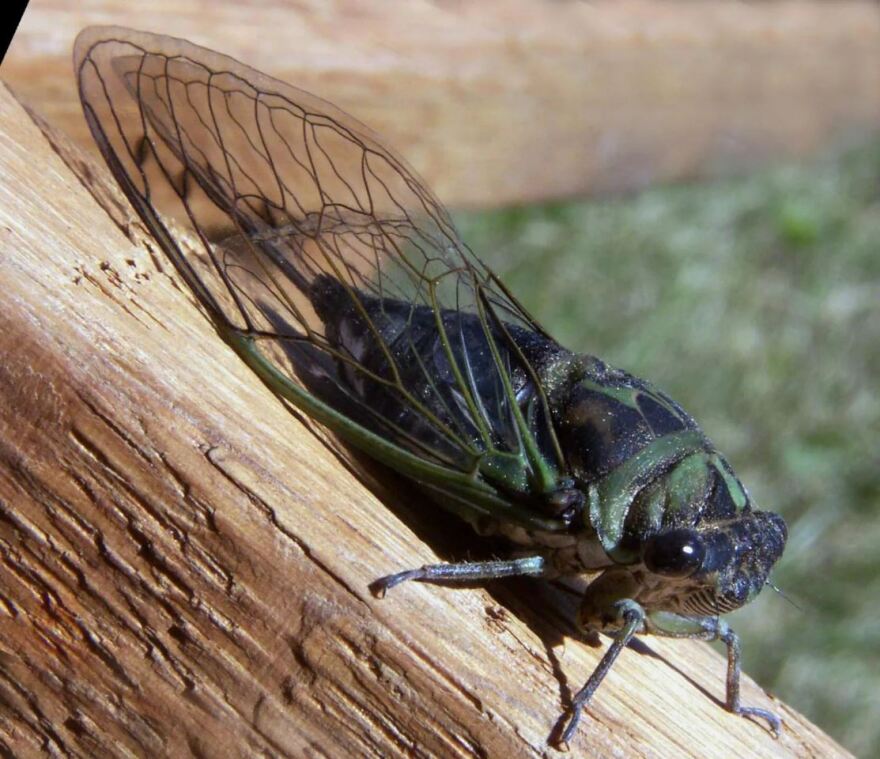Fort Worth residents will not be sweeping piles of cicada shells off their driveways later this spring, according to an insect researcher at the University of Texas at Arlington.
“This is good news,” Alison Ravenscraft, an assistant biology professor, said with a chuckle.
The upcoming “cicada invasion” expected to occur this spring is the first time in 221 years, two different broods of the insects will emerge at the same time.
One brood pops out of the soil every 13 years, while the other emerges every 17 years.
Billions of cicadas are expected to arrive in this once-in-a-lifetime concurrent emergence, an event that last occurred when Thomas Jefferson was president in 1803.
The geographic spread of the emergence is also a part of what’s so unusual, she said.
“When you call your relatives in Illinois, your friend in Alabama and your friend on the East Coast, one friend will be complaining about sweeping dead cicadas off their porch, and another will be talking about how gross their dog is for eating them,” she said.
Fort Worthians won’t deal with the cicada invasion like their friends in the Midwest, but they will still hear the mating songs of the cicadas that emerge annually in Texas, Ravenscraft said.
“The males are the ones singing, and they have these very loud calls to attract the females,” Ravenscraft said.
Ian MacLean, president and owner of Highland Landscaping, doesn’t like cicadas.
“They’re loud and not great pilots because they crash into you,” he said.
However, MacLean recognizes the positive impact they can have and notes Texas residents should resist the temptation to use pesticides on any they do see.
“They’re an important food source for a lot of animals, and you could be killing beneficial pollinators,” MacLean said.
Tarrant County residents won’t get to see this “biblical-like plague” of insects those farther north will experience, Ravenscraft said.
However, those interested in an insect-themed field trip can drive to the Texas-Oklahoma state line to experience some of the cicada action, she said.
“We just have to convince people that this is a cool thing to experience,” she said.
People who are in the range of this emergence may not be able to fully appreciate the cicada event unless they have some background information, such as knowing that normally the broods avoid each other and keep to localized spatial patches.
But these two broods border each other, Ravenscraft said.
“I would call this a really exciting, but also very subtle natural history event,” she said.
One way Texans may be able to participate is by using a free community crowdsourcing app called Cicada Safari, Ravenscraft said.
“If people don’t want to travel, they can download this app and upload pictures of cicadas so that scientists can understand more about these animals,” she said.
Keyla Holmes is a reporting fellow for the Fort Worth Report. You can contact her at keyla.holmes@fortworthreport.org. At the Fort Worth Report, news decisions are made independently of our board members and financial supporters. Read more about our editorial independence policy here.
This article first appeared on Fort Worth Report and is republished here under a Creative Commons license.

